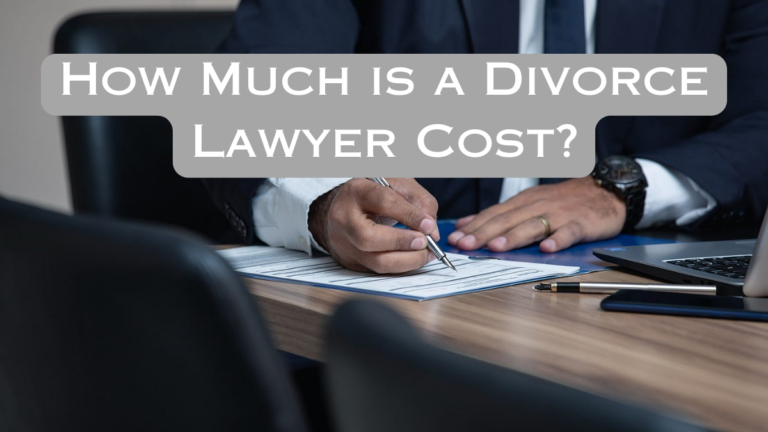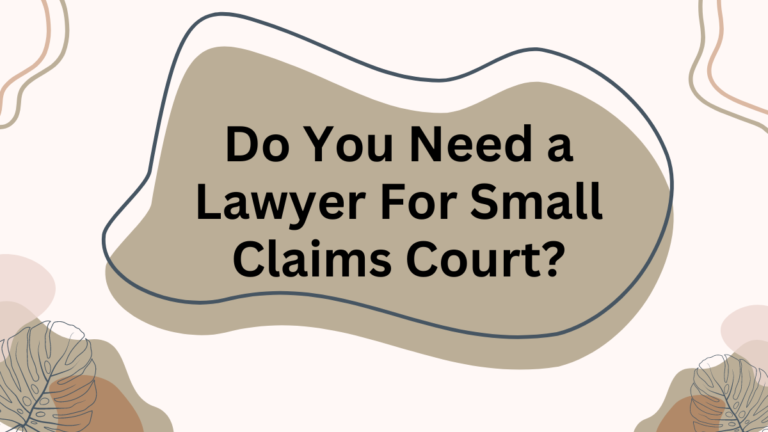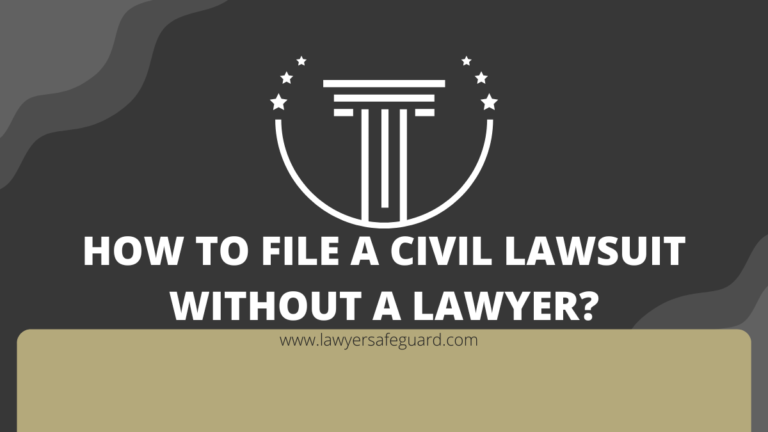What Kind of Lawyer Do I Need?
A lawyer is someone who helps people with legal problems. There are different kinds of lawyers, but all of them have the same goal: to help their clients get what they need from the law.
If you are in the United States, you most likely need a lawyer if you have been accused of a crime. If you have been sued, you will probably need a lawyer to help you fight the case or negotiate a settlement. Lawyers can also help people with business legal problems, such as negotiating contracts or understanding tax laws.
There are many different types of lawyers, so it is important to choose one that will be best suited for your legal problem. You should also ask around to see if anyone has any recommendations.
Types of Lawyers
There are many different types of lawyers and each one has their own specialization.
If you have a specific question about what kind of lawyer is best for your legal situation, you should speak to an attorney who specializes in that area. However, here is a general overview of the different types of lawyers:
- Criminal Lawyers: Criminal lawyers specialize in representing people who have been arrested or are being investigated for a crime. They can help you negotiate bail or get your case moved to a less crowded court room.
- Family Law Lawyers: Family law attorneys represent couples who are fighting over custody, child support, and alimony. They can also help you resolve disputes about wills, trusts, and other family matters.
- Immigration Lawyers: Immigration lawyers represent people who are seeking to immigrate to the United States or Canada. They can help you understand the paperwork requirements and guide you through the process of applying for citizenship or residency status.
- Business Law Lawyers: Business law attorneys represent companies in litigation or negotiations with other businesses. They may also offer advice on creating shareholder agreements, forming corporations, and negotiating contracts with suppliers and customers.
Education Requirements for Lawyers
In order to be a successful lawyer, you will need at least an undergraduate degree in the relevant subject, as well as significant legal experience. In the United States, most states require lawyers to have a law degree from an accredited law school.
However, there are a number of other ways to become a lawyer. If you have a Juris Doctor (JD) from an accredited law school, you are already qualified to practice law in most U.S. jurisdictions. You can also qualify if you have completed three years of full-time legal study at an accredited law school and passed the bar examination in your state or territory.
Required Licenses for Lawyers
The following is a list of licenses that are typically required for lawyers. While not all states require each license, most do.
Lawyers in many states must have a license to practice law. The requirements vary by state, but in general, you need to pass an exam and meet other qualifications prescribed by the state.
Some common licenses required to practice law include:
Barrister or solicitor: In many jurisdictions, you need to be a barrister or solicitor to practice law. This means you must have completed an accredited legal education program and passed an appropriate licensing exam. In some jurisdictions, you may be able to conduct legal work without a license, but it’s usually more advantageous to have one.
In many jurisdictions, you need to be a barrister or solicitor to practice law. This means you must have completed an accredited legal education program and passed an appropriate licensing exam. In some jurisdictions, you may be able to conduct legal work without a license, but it’s usually more advantageous to have one.
Attorney: A lawyer who is not licensed as either a barrister or solicitor can generally still provide limited legal services under the supervision of a licensed lawyer. However, doing so typically requires taking additional courses and passing additional exams.
A lawyer who is not licensed as either a barrister or solicitor can generally still provide limited legal services under the supervision of a licensed lawyer. However, doing so typically requires taking additional courses and passing additional exams
How to Choose the Right Lawyer for You?
Finding the right lawyer for you can be a daunting task. You want someone who is experienced and knowledgeable, but you also need someone who will be responsive to your needs and who you can trust. Here are some tips to help you choose the right lawyer:
- Do your research
Before you hire a lawyer, do your research. Ask friends or family members if they have any recommendations, check online reviews, or visit Lawyers.com to get an overview of different law firms in your area. Go beyond just looking at ratings and read about each firm’s history, services offered, and philosophies. This will help you decide which one is best suited for your needs.
- Consider your budget
When it comes to hiring a lawyer, don’t forget about budget constraints. Not all lawyers are the same; some charges more than others for similar services. Don’t be afraid to ask around or check online reviews to find out what other clients have paid for similar services. Also, consider whether a contingency fee agreement (where the lawyer takes a percentage of the settlement or judgment) is something that would work for you budgetary constraints and desired level of involvement in the case.
- Get references
Before making any decisions about hiring a lawyer, it’s important to get references from people you know well—friends, family members, colleagues—who can speak highly of their experience working with that particular lawyer. Ask them if they would be willing to endorse the referral letter
The Role of a Lawyer
There are many types of lawyers, and the type of lawyer you need depends on the specific legal situation. A lawyer can represent you in a criminal case, a civil case, or a business dispute.
If you have been arrested, you will need to speak with an attorney. An attorney can help protect your rights and get charges against you dropped or reduced. If you are charged with a crime, it is important to have an attorney on your side.
A lawyer can also help you deal with family law issues such as custody, child support, and spousal support. If you are considering divorce, having an attorney can make the process much easier.
Certain types of business disputes may require the assistance of a lawyer. For example, if your company is being sued for defamation or breach of contract, it is important to have an experienced lawyer on your side.
It is also important to have a lawyer if you are involved in a car accident. A car accident can be traumatic and lead to serious injuries if not handled correctly. Hiring an attorney can help ensure that all parties involved receive fair compensation for their losses
Conclusion
As a first time home buyer or business owner, it is important to have an attorney who will be able to help you navigate the legal system and protect your rights. Whether you need representation for a simple contract dispute or need expert advice in order to secure your legal rights, choosing the right lawyer can make all the difference. Do your research and find an attorney who aligns with your specific needs so that you can get the most out of your interactions with the law.






